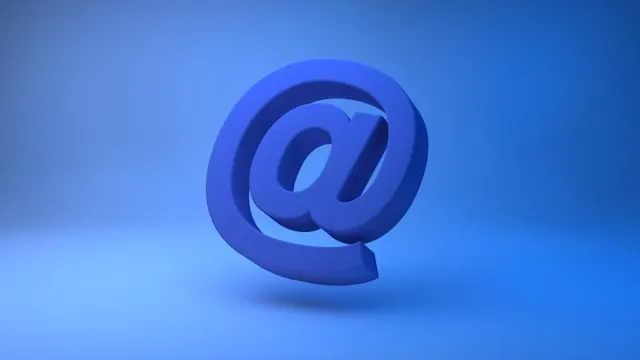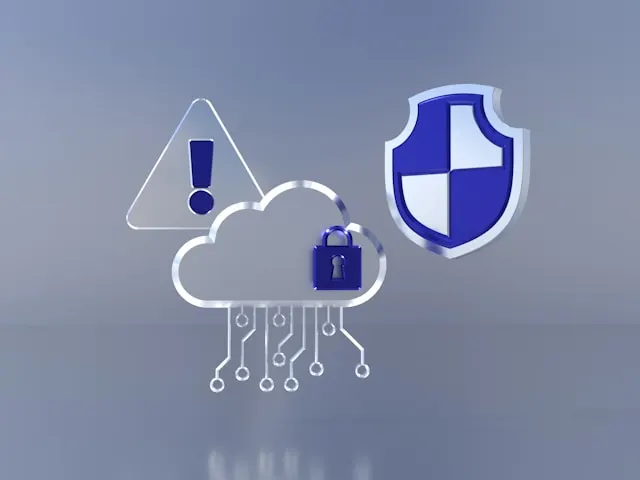How to Apologize for Missing a Meeting (with 5 Email Templates)

It’s totally normal to miss a meeting; what really matters is how you handle it afterward. Knowing how to apologize for missing a meeting is key to restoring confidence, and can go a long way.
In this blog, we will:
- Share the best way to apologize for missing a meeting
- Guide you through how to apologize for missing a meeting in an email
- Offer sincere apology examples for 5 different scenarios
- List 5 follow-up actions to take after missing a meeting
Let’s get started.
What is the best way to apologize for missing a meeting?
The best way to apologize for missing a meeting is to start by acknowledging your absence and taking full responsibility for it as soon as you can. Send a polite and well-crafted apology message that expresses your regret in a timely, sincere and concise manner. Then follow up with key individuals if your absence had a direct impact on them.

Additionally, offer solutions to stay updated, such as requesting a summary of key points or rescheduling a discussion. By learning how to apologize for missing a meeting and follow up afterward, you can show accountability and reinforce your reliability as a colleague or team member.
How to Apologize for Missing a Meeting in an Email
Phrasing and etiquette are crucial in conveying your professionalism and sincerity when you miss a meeting. With actionable tips and best practices, this step-by-step guide can help you navigate how to apologize for missing a meeting at work.
- First, write a clear and professional subject line. This should immediately convey the purpose of your message, such as “Apology for Missing the [Meeting Name]”. Another alternative can be “Follow-Up on My Absence from [Meeting Name]”.
- Address the recipients in the appropriate way. For a group, you can use “Dear Team” or “Dear All”. For an individual, address them by their first name or last name depending on the level of formality required, such as “Dear Mr. Lee” or “Hi Alex”.
- Acknowledge your absence and apologize directly. Taking responsibility for your absence will demonstrate that you value the meeting and the efforts of those involved. You can simply write, “I want to apologize for not attending the [meeting name] today.”
- Briefly explain your reason for missing the meeting. Be honest but avoid overexplaining or making excuses. For example, you can say “Unfortunately, I encountered an unexpected [situation, such as a scheduling conflict, personal emergency, or technical issue] that prevented me from attending.”
- Propose a resolution or follow-up action. Show initiative to stay aligned with the outcomes of the meeting. For example, write “Please let me know if there are any specific tasks or follow-up items I can assist with. I would also appreciate it if you could share the key takeaways or provide me with any materials discussed during the meeting.”
- End the apology message with gratitude and commitment. Thank the recipient(s) for their understanding and emphasize your commitment for moving forward. You can say, “Thank you for your understanding. I will prioritize my attendance and participation in future meetings.”
- Use a professional sign-off. Conclude your email with a formal closing. “Sincerely, [Your Name]” and “Best regards, [Your Name]” will reinforce the tone of your message and leave a positive impression.
- Adding a business card by Uniqode to your signature enables recipients to instantly save your contact details, enhancing your professional impression.
Missed a Meeting? No Problem
5 Apology Message Templates for Missing a Meeting
There are various reasons why you might miss a meeting, where you must handle the situation with care, sincerity and professionalism. Here are 5 email templates showing how to apologize for missing a meeting, helping you maintain a positive relationship with your team.
Personal Emergencies
An unforeseen personal situation (like a family emergency or a medical issue) may require immediate attention, causing you to miss the meeting.
Subject line: Apology for Missing [Meeting Name]
Dear [Team/Recipient's Name],
I apologize for missing the [Meeting Name] earlier today. A sudden family health issue required my immediate attention.
Please let me know if there were any critical points or decisions made that I should be aware of. I would be happy to reschedule a follow-up meeting to discuss any missed topics in more detail.
Thank you for your understanding and flexibility during this difficult time.
Best regards,
[Your Name]

Scheduling Conflict
Whether due to overlapping meetings or miscommunication, a scheduling conflict can sometimes result in a missed meeting.
Subject line: Apology for Missing the [Meeting Name] Today
Dear [Team/Recipient’s Name],
I apologize for missing the [Meeting Name] today. Unfortunately, a scheduling conflict arose that I was unable to resolve. Another meeting ran longer than anticipated, preventing me from attending yours as planned.
I understand that this may have caused some disruption. I'm available on [List of dates and times] to discuss the meeting's key points and any action items. Please let me know what time works best for you.
Thank you for your patience and understanding.
Best regards,
[Your Name]
Technical Difficulties
Sometimes, technical issues like internet connection problems or software malfunctions can prevent you from attending or fully participating in a meeting.
Subject line: Apology for Missing [Meeting Name]
Dear [Team/Recipient’s Name],
I apologize for missing the [Meeting Name] today. Unfortunately, I encountered unexpected technical difficulties with my internet connection, which prevented me from joining the meeting on time.
I would be happy to reschedule a brief meeting to discuss any missed topics. Please let me know if there’s anything specific I can do to catch up or contribute to the project.
Thank you for your understanding.
Best regards,
[Your Name]

Travel Delays
Travel delays (such as flight cancellations or transportation issues) are often beyond our control, but it’s important to communicate promptly and offer solutions to stay informed.
Subject line: Apology for Missing [Meeting Name] Today
Dear [Team/Recipient's Name],
I apologize for missing the [Meeting Name] today. Unfortunately, my flight was delayed due to bad weather, and I was unable to make it in time.
I'll be sure to review the meeting notes, and follow up on any action items and next steps. I'll provide an update by [Date].
Please let me know the best way to bring myself up to speed on the project.
Thank you for your understanding.
Best regards,
[Your Name]
Unforeseen Workload
For unforeseen workload situations, it’s crucial to convey that you value the meeting but were caught up in critical work.
Subject: Apology for Missing [Meeting Name]
Dear [Team/Recipient’s Name],
I apologize for missing the [Meeting Name] today. A pressing client issue unexpectedly arose, which required my immediate attention and prevented me from attending the meeting.
I will review the meeting notes and address any tasks assigned. If there’s anything else I can do to assist or contribute, please let me know.
Thank you for your understanding and flexibility during this busy time.
Best regards,
[Your Name]

5 Essential Follow-Up Actions After Missing a Meeting
Besides sending a sincere apology letter, there are several follow-up actions to mitigate the negative effects of missing the meeting and reaffirm your commitment to move forward.
- Request and review the meeting transcript and summary. The quicker you request it, the sooner you can catch up and avoid delays in your work. When reviewing the documents, focus on the key decisions, action items, and any points that directly impact your role.
- Reschedule a one-on-one catch-up meeting. When suggesting a new time, offer a few time slots that work for you to demonstrate flexibility. Start the rescheduling request by acknowledging that you missed the original meeting and express your appreciation for their time.
- Offer solutions for missed work. If you were assigned tasks during the meeting, take responsibility and find ways to address them promptly. Provide a timeline for when you will complete any missed work and communicate this to relevant team members or stakeholders.
- Check and update your calendar regularly. Review it for any overlapping events or double-bookings. Enable reminders for important meetings, and choose intervals that give you enough time to prepare and join.
- Contribute to group collaboration. Get involved in the ongoing projects or tasks that were discussed during the meeting. Add or edit tasks on collaborative project management tools, or offer your insights on Kanban boards and shared documents.
Frequently Asked Questions
How do I send apologies for missing a meeting?
Understanding how to apologize for missing a meeting formally ensures accountability and helps maintain trust. In this case, you can send a prompt email or apologize in-person to express your regret. Briefly explain the reason for your absence, take responsibility, and offer to catch up on missed points or schedule a follow-up meeting.
How do you politely reschedule a missed meeting?
If possible, reschedule in person by starting with an apology for missing the meeting. Then politely ask when they would be available and offer several alternative times that suit you. If you can’t reschedule in-person, send a professional email acknowledging your absence and suggesting a few flexible times for rescheduling.
How do you apologize for being late multiple times?
It is best to apologize directly and emphasize your understanding of how it has disrupted schedules. Clearly state your commitment to punctuality by outlining changes like setting reminders earlier. This shows you value others’ time and put a genuine effort to improve.
How do you apologize for missing a business call?
You can apologize briefly, explain your reason for missing the call, and offer to reschedule the conversation. Let them know you’ve already prepared for the next call to make the most of their time. Share your availability in detail to make the rescheduling process as seamless as possible.
How do you politely get out of a meeting?
If you need to leave early, inform the group by saying, “I apologize, but I have another important meeting I must attend. Thank you for understanding and I’ll follow up on any missed content.” This is polite and straightforward, minimizing disruption.
Summary
This blog provided a step-by-step guide on how to apologize for missing a meeting. It also shared 5 ready-to-use apology letter templates to send via email, and listed 5 follow-up actions to take after missing a meeting.
Here are our three golden rules on how to apologize for missing a meeting:
- Send the apology email as soon as possible to show that you acknowledge your absence and respect the time of those involved.
- Offer flexible rescheduling options to demonstrate your commitment to staying aligned with the meeting’s outcomes.
- Read through the meeting summary to quickly grasp the discussions, decisions, and action items of the meeting.
Keep these tips and best practices in mind so you can handle missed meetings with confidence, class, and professionalism.


